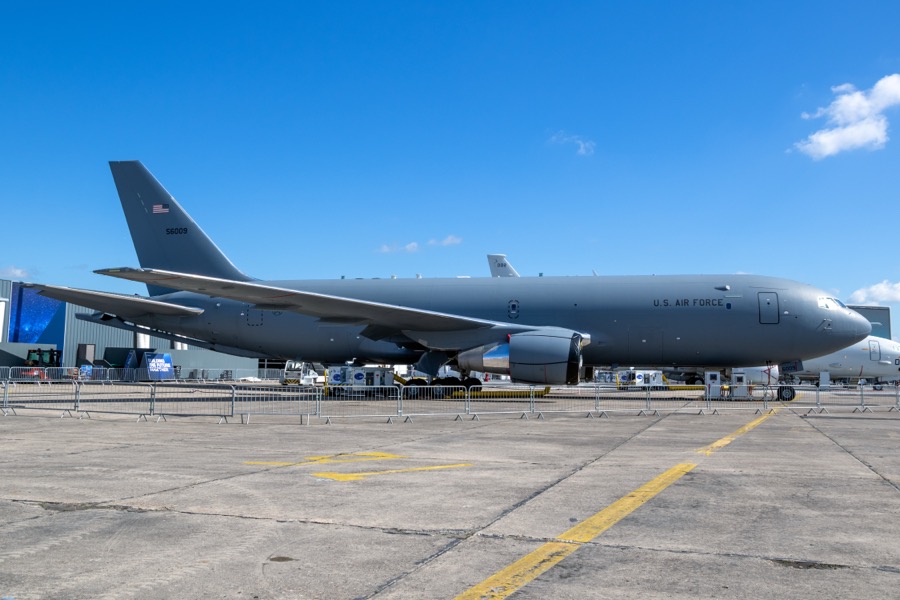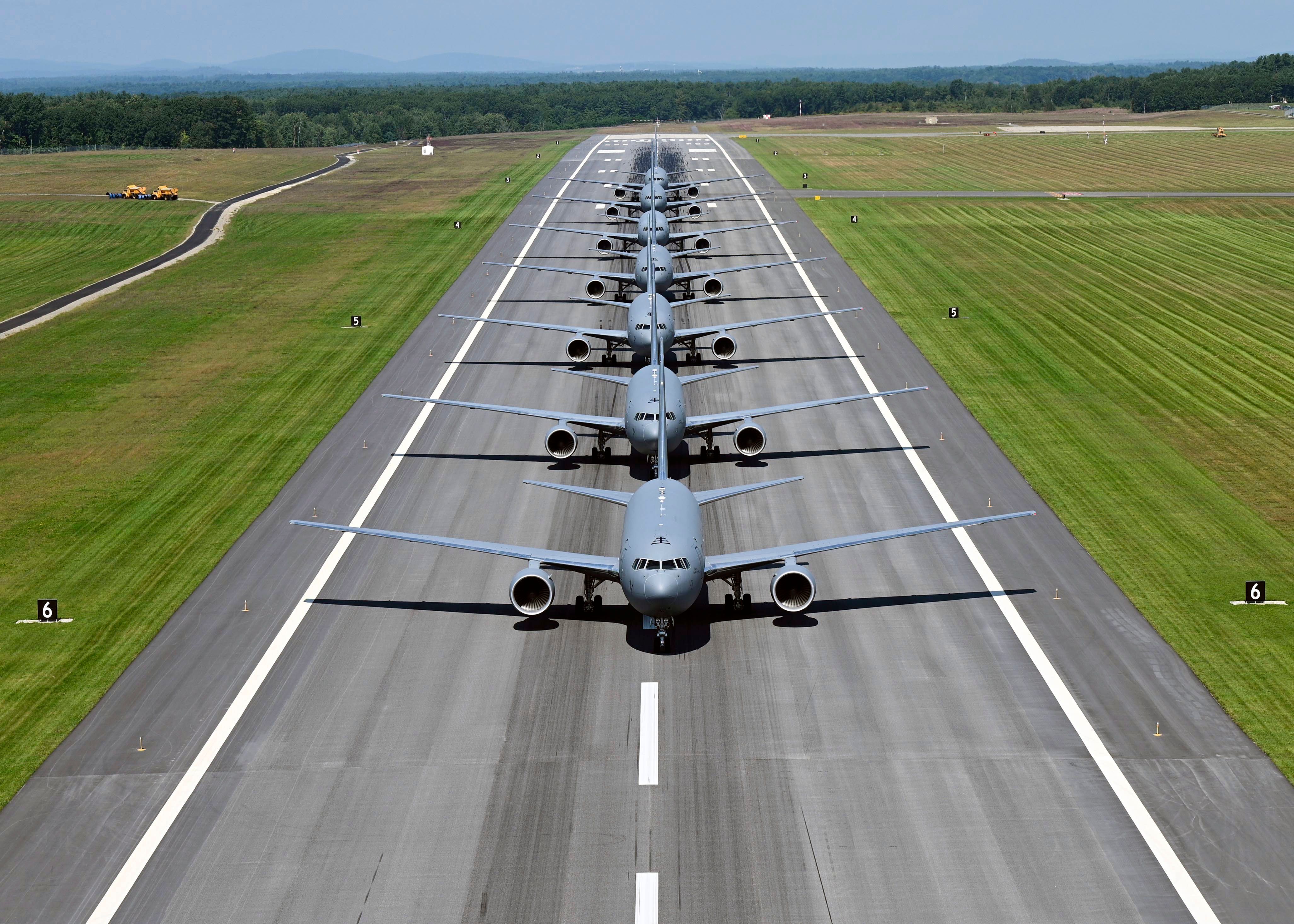The U.S. Air Force and Boeing have finalized a significant $2.4 billion contract for the procurement of 15 new KC-46 Pegasus aerial refueling tankers. Announced on November 21, this latest agreement for Lot 11 of the program marks another step forward in the Air Force’s efforts to modernize its fleet and bolster aerial refueling capabilities.
Here's ads banner inside a post
A Closer Look at the Deal
The Pentagon revealed the details of the contract, which comes to a total of $2.389 billion, with each aircraft priced at approximately $159 million. This contract brings the total number of KC-46 tankers ordered to 158 out of the 179 planned under the Air Force’s current procurement strategy.
Boeing has already delivered 89 aircraft to the U.S. Air Force, alongside four tankers supplied to the Japan Air Self-Defense Force, highlighting the growing global footprint of the KC-46 program.
Challenges and Progress
This deal is particularly significant for Boeing, which has faced numerous hurdles and financial losses in its KC-46 program. Over the course of development, the company has reported a staggering $7 billion in losses due to technical challenges and program delays. These setbacks have affected both Boeing’s defense and commercial divisions, with the KC-46 tanker program often serving as a lightning rod for criticism.
Here's ads banner inside a post
However, the program appears to be gaining momentum. After years of grappling with deficiencies in the KC-46’s refueling system, deliveries resumed in May following a temporary two-month halt caused by issues with the boom system. In October, the Pegasus achieved another milestone when it was deployed operationally for the first time. Tankers from Joint Base McGuire-Dix-Lakehurst in New Jersey were sent to the Middle East, marking a new chapter for the troubled program.
Rising Costs and New Challenges
The cost of the KC-46 has increased steadily, with Lot 11 priced $64 million higher than Lot 10, which was finalized last November. While rising costs are not uncommon in defense procurement, they underscore the challenges Boeing faces as it seeks to balance profitability with the delivery of cutting-edge technology.
Despite these financial pressures, the KC-46 program continues to demonstrate its value. Boeing highlighted in its release that the aircraft has logged more than 100,000 flight hours and offloaded over 200 million pounds of fuel, a testament to its operational capabilities and importance to the Air Force’s mission.
Here's ads banner inside a post
The Future of Aerial Refueling
As the KC-46 program makes progress, the Air Force is simultaneously evaluating its future tanker strategy. The service has ambitious plans to replace its aging KC-135 fleet as part of the broader Next-Generation Aerial Refueling System (NGAS) initiative.
The NGAS concept envisions a somewhat stealthy tanker designed to operate in contested airspace, complementing the Air Force’s Next-Generation Air Dominance (NGAD) fighter. This combination would extend the range and reach of U.S. fighter aircraft, ensuring air superiority in future conflicts.
However, budget constraints are forcing difficult choices. Air Force Secretary Frank Kendall recently acknowledged that the service’s current funding levels may not support the simultaneous acquisition of NGAS, NGAD, and Collaborative Combat Aircraft (CCA). As a result, the Air Force will have to prioritize which programs to fund in the near term.
Boeing’s Strategic Position
For Boeing, this contract represents a much-needed boost to its defense portfolio at a time when the company is striving to recover from losses and reestablish its reputation. The KC-46 program is a key pillar of Boeing’s military operations, and continued contracts like Lot 11 help secure its future while addressing past challenges.
Boeing is also looking to build on the KC-46’s existing capabilities to potentially offer upgraded versions in the future. Such enhancements could align with the Air Force’s broader recapitalization efforts, positioning Boeing as a long-term partner in the evolution of aerial refueling.
Looking Ahead
With 158 tankers now under contract and 89 already delivered, the KC-46 Pegasus is steadily becoming a critical asset for the Air Force. Its operational deployment in the Middle East is a sign of growing confidence in the program’s capabilities, despite its troubled history.
The Air Force’s tanker fleet remains a linchpin of its global operations, enabling extended missions and rapid response capabilities. As the service navigates budgetary challenges and shifting priorities, the KC-46 program will likely continue to play a central role in maintaining U.S. airpower dominance.
While the KC-46 program is far from perfect, its trajectory is now one of progress and promise. For Boeing, the Lot 11 contract offers a chance to turn the page on past struggles and focus on delivering the modern capabilities the Air Force needs. For the U.S. military, it ensures that aerial refueling remains a cornerstone of its strategy for years to come.

